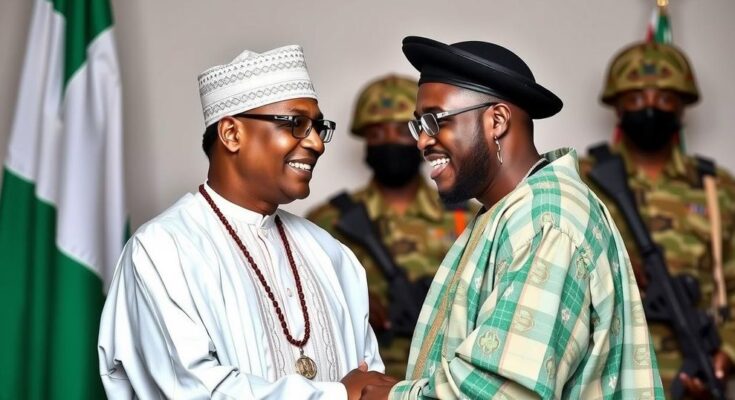Professor Eghosa Osaghae asserts the significance of President Tinubu’s foreign travels in attracting foreign investments critical for Nigeria’s development. He emphasizes the necessity for international collaboration to tackle security threats, recognizing the transnational nature of terrorism and banditry. Osaghae reflects on the challenges posed by the ECOWAS withdrawals of Sahel countries while maintaining hope for ongoing diplomatic ties, and discusses the implications of Nigeria potentially joining BRICS.
The Director-General of the Nigerian Institute of International Affairs, Professor Eghosa Osaghae, emphasizes the importance of President Bola Tinubu’s foreign trips as integral to Nigeria’s foreign policy and economic strategy. He argues that the cost of these travels is outweighed by the benefits, particularly in attracting foreign direct investments that can foster national development. Osaghae asserts that Nigeria must engage globally to secure necessary technology and resources to combat insecurity, citing that issues such as terrorism and banditry require collaborative efforts across national borders. He highlights the interconnectedness of regional security, especially with neighboring nations like Niger, emphasizing the need for cooperation to address these transnational threats effectively.
Osaghae discusses the recent military changes in the Sahel region, lamenting the withdrawal of Mali, Burkina Faso, and Niger from ECOWAS, yet he remains optimistic about the continuity of trade and relationships despite these developments. He urges that the fight against insecurity is not solely a Nigerian concern and that effective solutions require regional cooperation. Furthermore, regarding Nigeria’s potential membership in BRICS, Osaghae clarifies that such an alliance is not inherently anti-American but serves to enhance Nigeria’s economic options on a global scale, providing alternatives along with established international partnerships.
The article centers on Professor Eghosa Osaghae’s interview regarding Nigeria’s diplomatic efforts under President Bola Tinubu. It discusses the significance of foreign trips undertaken by Nigerian leaders amid domestic challenges, emphasizing their role in enhancing Nigeria’s global economic standing. In light of Nigeria’s ongoing security issues, particularly threats posed by terrorism and banditry, Osaghae outlines the need for international collaboration to tackle these challenges. Additionally, the commentary touches upon the implications of regional political shifts, specifically concerning ECOWAS and its interactions with military-led governments in neighboring states, while also reflecting on Nigeria’s relationship with emerging global coalitions such as BRICS.
In conclusion, Professor Eghosa Osaghae argues that Nigeria’s foreign engagements, particularly through presidential initiatives, are crucial for attracting investments and addressing pressing security challenges. He highlights that collaboration with neighboring countries and global partners is vital for effective security strategies, advocating for a robust approach that combines economic and security diplomacy. Despite regional upheavals, Osaghae remains confident in the enduring ties between Nigeria and its neighbors, as well as the importance of global alliances like BRICS in enhancing Nigeria’s economic opportunities.
Original Source: punchng.com




